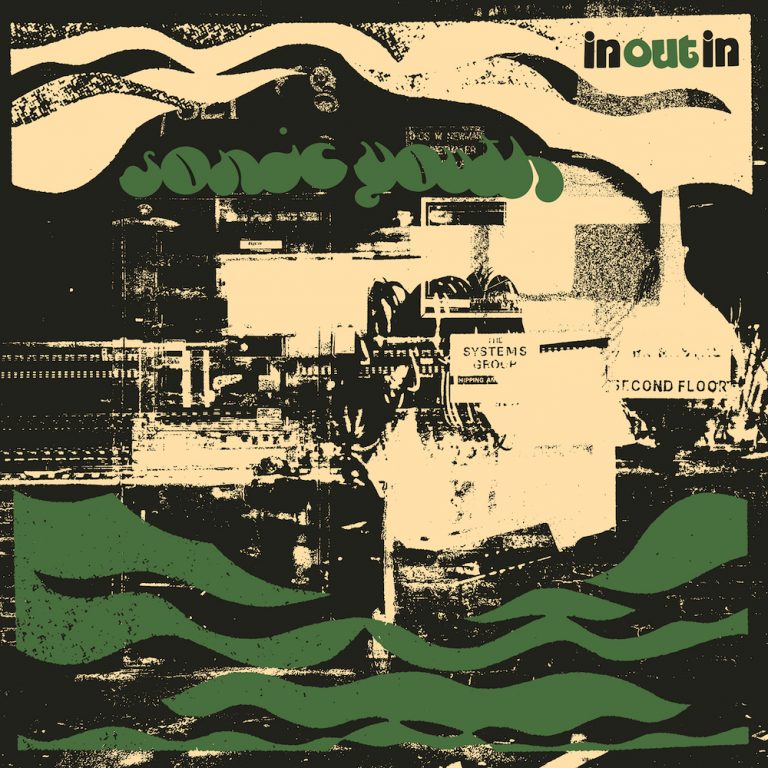Sonic Youth rarely gave us what we expected, and for that they should always be praised. On the cusp of the grunge wave in the early 1990s that they pretty much pioneered, and as their star-by-association couldn’t get any higher, they released the wonderful but challenging Experimental Jet Set, Trash and No Star which was a slap in the face to the corporate takeover of the subculture. As Dinosaur Jr’s J. Mascis was mumbling his way through a feature on grunge fashion on the BBC’s horrendous The Clothes Show, as the Kurt and Courtney show imploded in the most devastating way, and as major labels were steadily getting their teeth into the scene and making Puddle of Mudd a thing, one of the leading proponents denied their growing audience the slice of frenetic punk energy that broke in ’91.
For a band well known for giving little to anything other than their own creative impulses, it’s no surprise to find this collection of jams is a freewheeling bag of intellect over energy. Now, freed from the constraints of temporality and the need to promote the work, Sonic Youth release In/Out/In, a record of outtakes from 2000-2010; their latter period where liminality was their signature sound. The tracks ruminate rather than rattle, as intricate guitar lines overlap and wander this way and that, merrily falling between beautiful rapture and a kid’s first go on a guitar. They always made a joy out of off-key dissonance, and the manner in which they make the deliberate sound entirely accidental speaks more to the works of Glenn Branca or Derek Bailey than to their grunge “peers”.
The five tracks on In/Out/In showcase the varying sides to Sonic Youth, from kosmiche loving nerds, to gleeful propagators of exquisite feedback drenched noise pieces, to kool things knocking out earworm riffs like they’re going out of fashion. Album opener “Basement Contender” sets the tone for the majority of what follows as it meanders in a delicate style, reminiscent of “Free City Rhymes” from their all-too-often overlooked NYC Ghosts & Flowers. Both tracks evoke the feeling of a slumbering summer’s day, languid and resistant to real focus. The kosmiche musik feel is continued on “In/Out”, which is essentially one cool rock chick mumbling along to Neu. Kim Gordon’s breathy vocals add a sinister feel, the minimal sense of expression giving a haunted feeling to her performance as her voice oscillates in front of a metronomic beat and persistent guitars that layer on top of one another. It’s hardly a wall of noise, more a blanket of sound.
The raucous “Machine” highlights the propulsive quality of the band, staccato riffs and feedback adding a sense of urgency that is lacking elsewhere on In/Out/In. The discordant nature of the guitars hark back to the band’s late 80s peak of Sister and Daydream Nation while “Social Static” is a fine mess of noise, and feels like it should have been an SYR release. During the band’s financial heyday they set up their own label, SYR, which was their way of releasing avant-noise and neo-classical minimalism without the commercial pressures of their major label overlords. A glorious set of ten records was released which highlighted the band’s experimental nature, and enjoyment of creating a righteous racket.
“Out & In” closes proceedings, a glorious psych-pomp affair which also feels lacking in direction and purpose. It’s actually the only instrumental track on the album which desperately needs a vocal to give it a focal point, and you get the impression that this would have had Thurston’s immaculate holler all over it. It’s needed.
The five tracks that make up this record span a whole decade’s worth of rehearsal tape. There is a lack of cohesiveness here, perhaps an oxymoronic statement about a band that thrived on the tension between varying melodies and noise rather than their synergy. The tracks are still unmistakably Sonic Youth, but in a period where each album had a particular feel and tone, these tracks feel too disjointed to sit together too well. As a document of a band that could often spew out magic with utter ease, this is a fine record of jams and half-conceived riffs, but there’s a general sense that these were works in progress that never reached their natural progressive end, and therefore In/Out/In feels as though we are prying in on a band at work, not in control of their output. Where they were once fiercely the agents of their own career trajectory, this feels like something of an unwelcome intrusion on works that never quite made the grade when it mattered.

